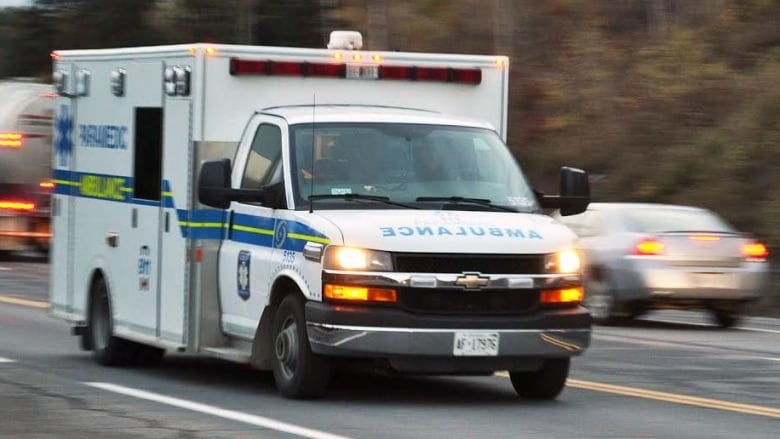Reducing hospital trips: Ontario government to overhaul ambulance system
Plan to revamp Ontario's Ambulance Act is expected to begin in March 2018

Fewer patients in Ontario could end up in hospital next year when they call 911 for medical care.
The provincial government is planning to revamp the Ambulance Actin a move that would see more patients treated on-scene, and referredto primary or community care instead of the hospital if deemed appropriate.
The idea behind the proposed changes is to reduce overcrowding and wait times at emergency departments.
Nickel Belt MPP France Gelinas, who is the province's NDP health critic, told CBC she thinks the government is moving in the right direction, but she wants to make sure people are not discouraged from accessing urgent medical treatment.
"If this becomes a barrier, where people won't feel that it's worth calling 911 because an ambulance won't come, then I have serious problems with that," Gelinas said.
"I don't want this to be a barrier to access. I don't want this to be a barrier to care."
'It could in fact create more problems': CUPE
Gelinas said she will be following up with the government to get more information before modifications to the ambulance system start in March 2018.
Fred Hahn, the president of the Canadian Union of Public Employees in Ontario, is concerned the strategy could lead toparamedic and fire services frequently responding to medical 911 calls together.
"This is actually not a solution, and it could in fact create more problems," Hahn said.
"Would it be fine to just send a paramedic who happened to arrive on a fire truck, who gave you a few tablets and left you at home? No, no, no. People expect and should expect the kind of medical supports that we've had for generations in this province."
Hahn said he would rather see more funding go towards paramedicine.
The provincial government claims only one per cent of patients who were transported by land or air ambulance in 2015 were critically ill, and needed emergency transportation.
With files from the Canadian Press












_(720p).jpg)


 OFFICIAL HD MUSIC VIDEO.jpg)
.jpg)



























































































